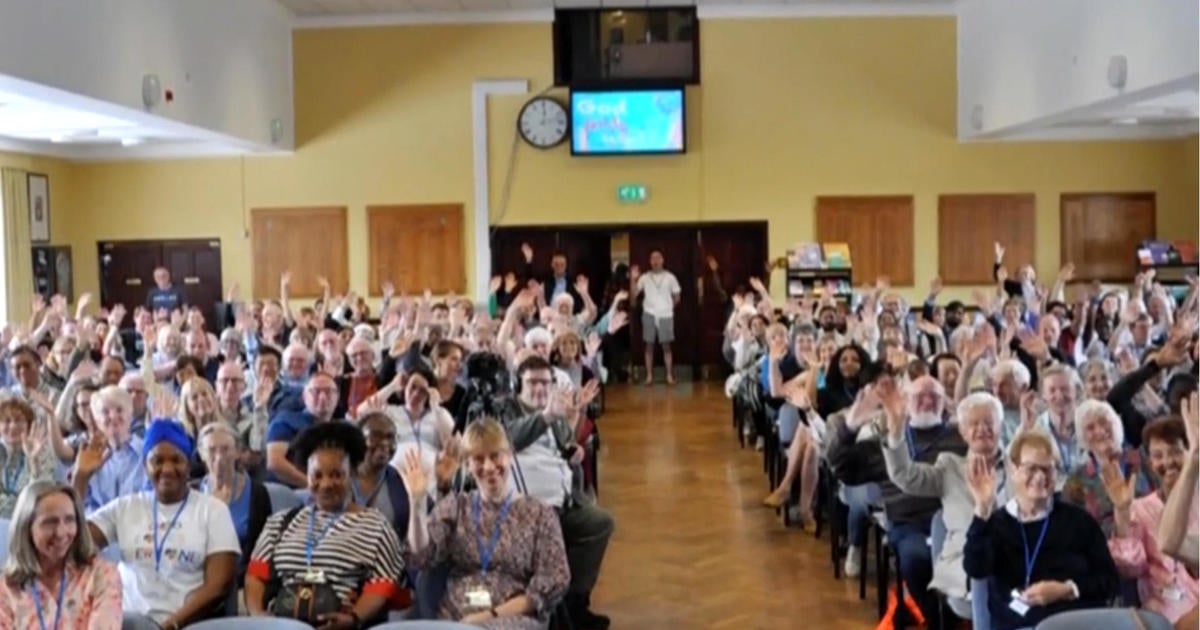In a culture dominated by consumerism, the Focolare Movement offers a stark contrast. This lesser-known movement, associated with the Catholic Church, encourages its members to live simple lives focused on unity. Members take vows of chastity, poverty, and obedience, choosing to live as a family rather than marrying. Their way of life centers on giving rather than owning.
In the latest installment of the “CBS Mornings” series “The State of Spirituality with Lisa Ling,” the lives of single men and women who are part of the Focolare Movement were explored. They focus on giving rather than owning.
Clarita Joung, a member of Focolare, describes this lifestyle as liberating. “You are free from your own attachments,” she said.
Aiming for Unity
Joung lives in California with Loretta Rauschuber, Jonna De Guzman, and Regina De Jesus, all of whom are part of the Focolare Movement. “We aim for unity,” Joung said.
The women own nothing and only take what is necessary to live. They often receive donated clothes, and the movement owns their home. They say they have chosen to live in a way that reflects how Jesus and his mother Mary lived.
“We say instead of a culture of having, we live a culture of giving,” Rauschuber said.
Focolare History
The Focolare Movement, founded by Italian schoolteacher Chiara Lubich in the 1940s, was approved by the Catholic Church in the 1960s. It has since expanded to over 100,000 followers in more than 180 countries. While many followers are Catholic, people of other faiths, including Muslims, Hindus, and Buddhists, also embrace the movement.
Focolare members stress that the movement is not a cult, and that followers can leave at any time. “In marriage, or any other vocation, there’s sacrifice, you’re building a family together,” Rauschuber said. “So, there’s commitments in any choice you make, you know? And it is radical. We agree. It’s a very radical choice.”
The women who live together see themselves as a family. “For us being a family means to have this love, you know, for one another, to the point of being ready to die for one another, like Jesus did,” Joung explained.
Working in the world
Unlike priests or nuns, Focolare members work regular jobs while living their lifestyle. The money they earn goes back into the movement and supports those in need. “It’s a choice we make,” Rauschuber said. “That money can maybe be used to keep the Focolare house in Syria open because there’s a war. Nobody can work. And so, there’s a reason why we set for ourselves also like a budget… because of a bigger goal we have.”
Focolare in Harlem
In Harlem, New York, CBS News visited a group of men who also live in a home provided by the Focolare Movement. Michael Morse, who had just moved into the Harlem house from another home, was joining three other men who had made similar commitments.
“We take turns cooking, we take turns cleaning the house,” Morse said.
Morse, who was raised Catholic in New York City, says he never aspired to the priesthood but felt a calling to join Focolare as a young man. “I guess it was the community that really attracted me, not only their presence, but how they lived,” he said. “It’s a choice, you know, I know that I won’t own my own house, my own car, but that gives me more freedom… to again dedicate myself to God’s work and to humanity.”
Morse’s parents were also part of Focolare, and he knew in his 20s that he wanted to follow this path. Although he had relationships in high school and college, his calling to dedicate his life to God was stronger.
“It has been hard,” he admitted. “But it’s that strength that God gives us and the strength of the community that really helps us stay firm in our choice.”
Morse believes he will remain part of Focolare for the rest of his life. “This is my family. This is what I’m called to,” he said. “I’m in it for the long haul.”



